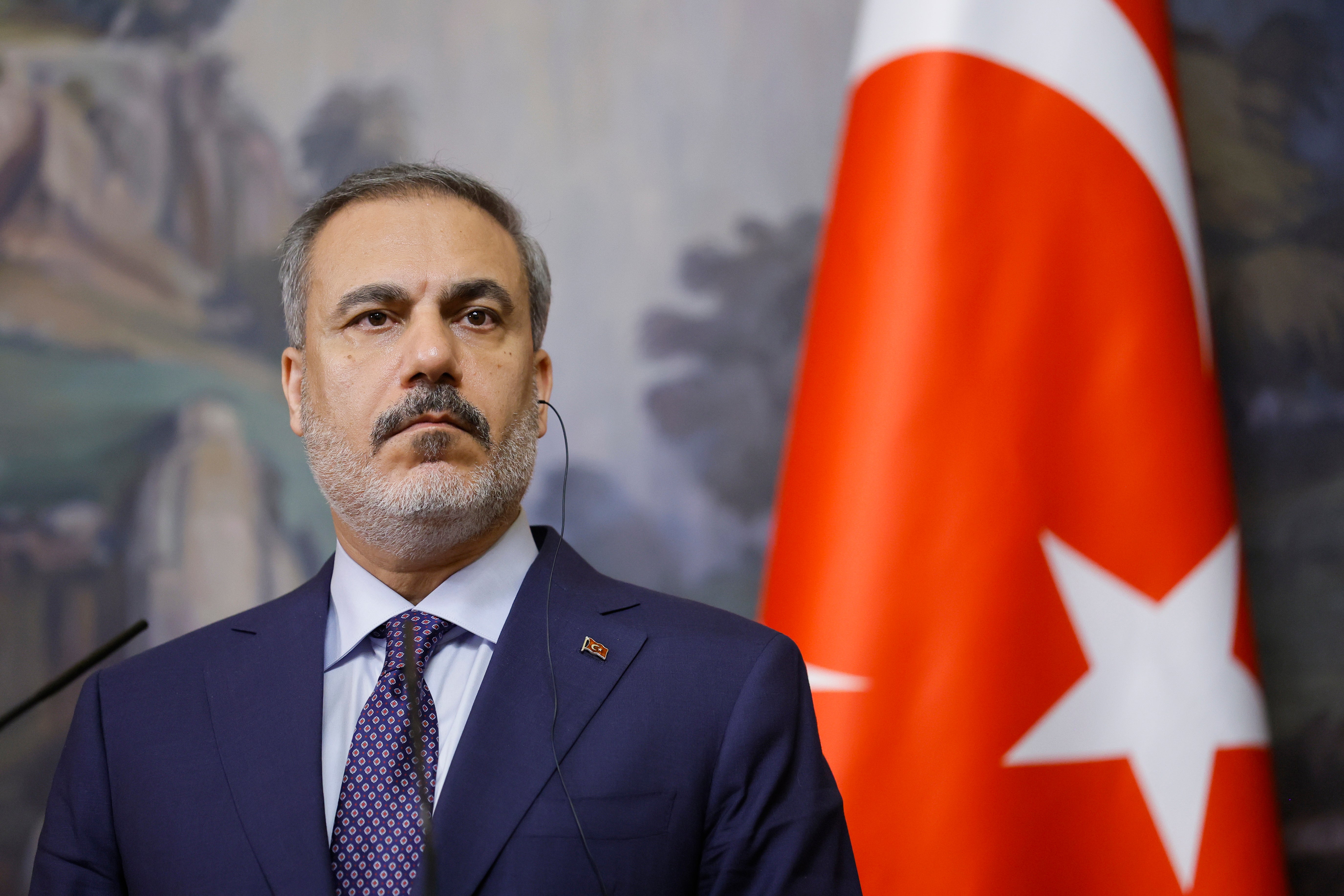Turkey warns it will strike Kurdish militants in Iraq and Syria after a suicide bombing in Ankara
Turkey’s foreign minister says Kurdish militants behind a suicide bombing in the Turkish capital face robust retaliation against their group’s positions in Syria and Iraq

Turkey’s foreign minister warned on Wednesday that Kurdish militants behind a suicide bombing in the Turkish capital face robust retaliation against their group’s positions in Syria and Iraq.
The outlawed Kurdistan Workers’ Party, or PKK, claimed responsibility for Sunday's attack outside the Interior Ministry in Ankara in which one attacker blew himself up and another would-be bomber was killed in a shootout with police. Two police were wounded in the attack.
Turkish warplanes already have conducted two airstrikes against suspected Kurdish militant sites in northern Iraq following the attack, which came as Parliament prepared to reopen after a long summer recess. Meanwhile, dozens of people with suspected links to the Kurdish militants have been detained in a series of raids across Turkey.
Foreign Minister Hakan Fidan said during a news conference that Turkish intelligence officials have established that the two assailants arrived from Syria where they had been trained. He said Turkey would now target facilities in Syria and Iraq belonging to the PKK or its affiliated Kurdish militia group, People's Defense Units, or YPG.
“From now on, all infrastructure, superstructure and energy facilities belonging to the PKK or the YPG in Iraq and Syria are legitimate targets of our security forces, armed forces and intelligence elements,” Fidan said.
“I advise third parties to stay away from the PKK and YPG and their facilities. Our armed forces’ response to this terrorist attack will be extremely clear and they will regret committing such an act," Fidan said.
Later on Wednesday, Fidan joined a previously unannounced security meeting with the country's interior minister, defense minister, top military commander and intelligence chief, the state-run Anadolu Agency reported.
Iraq’s defense minister was scheduled to visit Turkey on Thursday, the agency also reported.
The PKK has led a decades-long insurgency in Turkey and is considered a terror organization by the United States and the European Union. Tens of thousands of people have died since the start of the conflict in 1984.
Turkey’s air force struck suspected PKK sites in northern Iraq, where the group’s leadership is based, hours after the attack on Sunday, and again on Tuesday. The Defense Ministry said a large number of PKK militants were “neutralized” in the strikes.
Meanwhile, Turkish intelligence agents killed a wanted Kurdish militant in an operation in Syria, the state-run Anadolu Agency reported on Wednesday.
The militant, who was identified as Nabo Kele Hayri and went by the codename of Mazlum Afrin, was wanted for his alleged role in planning an attack last year on Istanbul’s main pedestrian street, Istiklal. The attack left six people dead.
Bookmark popover
Removed from bookmarks